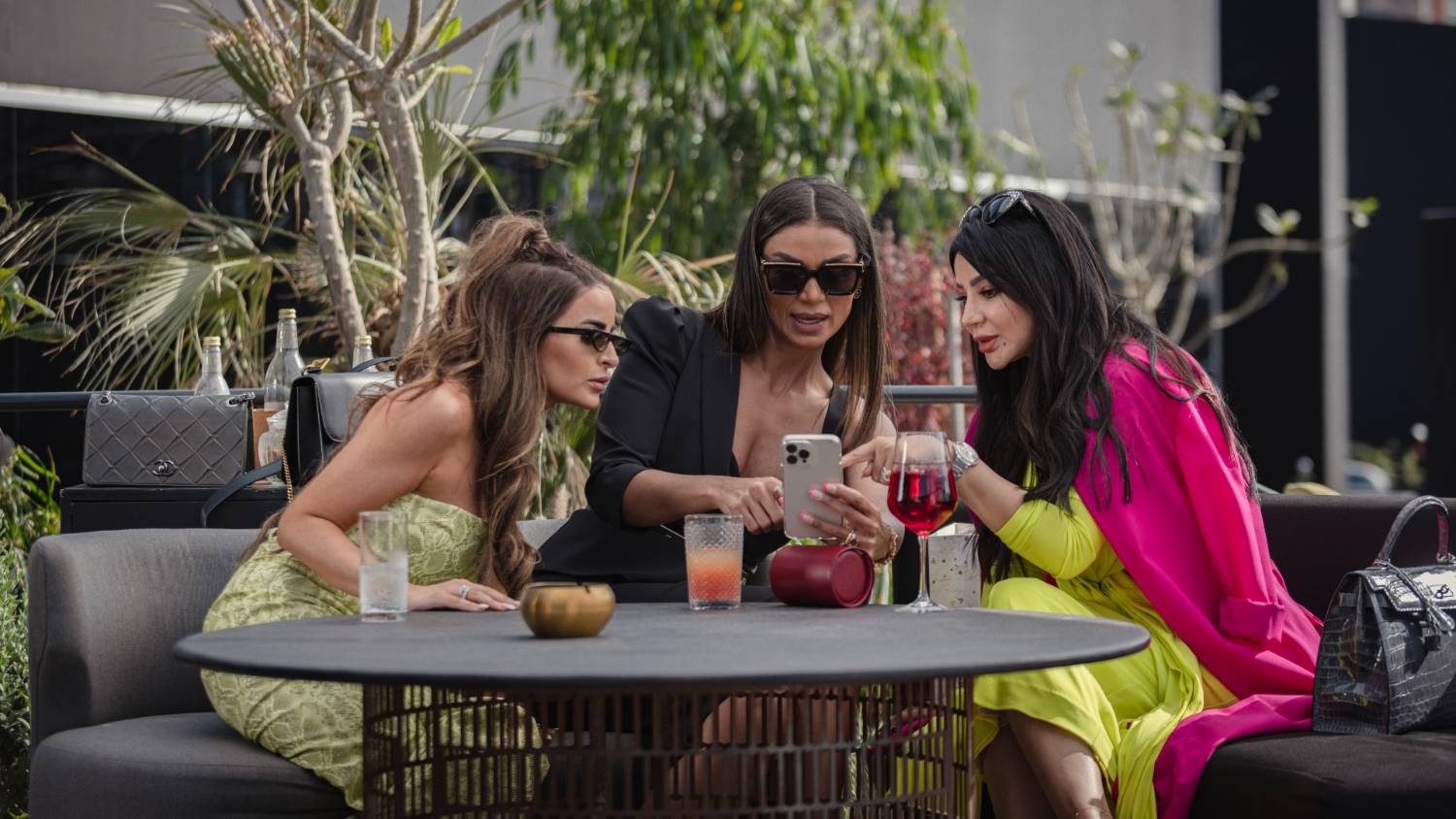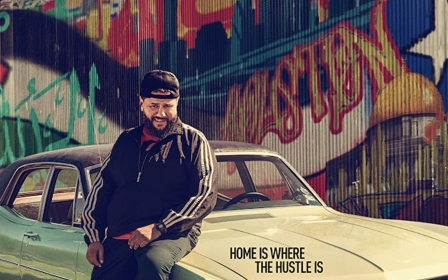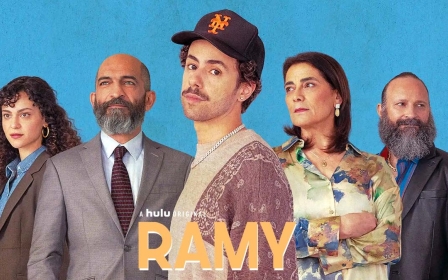Netflix's Dubai Bling: Audience takes aim at 'cringey' reality TV show

A Netflix series following the lives of Dubai's rich is causing a stir on social media, earning itself a devoted audience while being criticised as unrepresentative, "cringey" and "shallow" by critics.
Featuring a cast of successful vloggers and entrepreneurs, Dubai Bling invites the viewer into the world of the emirate's elite, as they party, get involved in spats and splurge on private jets, in a similar mould to the reality franchise Real Housewives.
Viewers are promised access to a "high-flying social circle in Dubai, where stunning skylines and jaw-dropping fashion are the norm", punctuated by sweeping shots of the city's luxurious venues and supercars.
Characters include Loujain, a billionaire widow decked out in diamonds, and Ebraheem, who owns a multimillion-dollar flower company.
Since debuting on 27 October, the series has carved out a space for itself on the streaming platform's most-watched list.
New MEE newsletter: Jerusalem Dispatch
Sign up to get the latest insights and analysis on Israel-Palestine, alongside Turkey Unpacked and other MEE newsletters
Divided reactions
As is typical with popular Netflix shows, Dubai Bling has both built up a fanbase and drawn criticism, in this case for its gaudy displays of wealth.
One fan on Twitter, named Wuti, summarised what she felt worked for the show, praising its "depth" compared with western reality TV favourites, such as Real Housewives, as well as for the use of Arabic by the main characters.
Others praised the comedic elements, as well as the dramatic episodes, such as the seemingly real arguments between those profiled.
The cast includes characters who raise issues not normally addressed in conversations about Arab culture, such as the lives of widows, single mothers, those in dysfunctional marriages and newly-wed couples.
Criticism centres on the show's representation of Arab culture as being materially motivated and simplistic.
Keren Bobker, a financial adviser living in Dubai, took to Twitter to caution people against believing in the “cringey” stereotypes perpetuated by shows like Dubai Bling.
Me and my $300 going to Dubai #DubaiBling pic.twitter.com/9s0qXSbzzX
— africanbeau (@beau_afr) October 28, 2022
“We aren't all plastic-looking, botoxed to f**k, in designer gear & pretentious wannabes. We're mostly normal” she wrote.
More critical comments were found under an Instagram post by cast member Kris Fade, who invited his followers to share their thoughts on the show. One said the show misrepresented the reality of life in Dubai, asking:
“What about the 90 percent working class of Dubai or the actual normal business owners who don’t act all materialistic and shallow?"
Watching Dubai Bling and the way Safa just went into bulgari and bought a $3M necklace just cuz she was upset at her husband. Like damn the net worths are not playin over here
— ☀️ Haechan (@nctfullsin) October 28, 2022
One particular target of criticism is British-Iraqi fashion designer Safa Siddiqui, who is depicted reacting angrily after her husband gifts her a property not to her liking and reprimanding her personal chef.
A TikTok video criticising her behaviour has already racked up 1.5 million views on the video-sharing platform- at the time of publication.
In addition to Siddiqui, cast members include realtor Zeina Khoury from Lebanon, American-Lebanese supermodel Loujain Adada, and Saudi Arabian TV host Lojain Omran.
Adada and Omran have received positive feedback for their seemingly more laidback and humble demeanour.
Whitewashing reality?
The lavish lifestyle that Dubai offers its elites has often been criticised for its materialism and perceived gaudiness. And others have long said that beneath the gleam of its luxury hotels and skyscrapers lies an authoritarian system.
Broadcast in early 2022, the BBC's documentary Inside Dubai was criticised for focusing too much on the luxury lifestyle in the emirate while glossing over the UAE's human rights record, in particular the way it deals with dissidents, including human rights campaigner Ahmed Mansoor, who was sentenced to 10 years in prison for tweets that authorities claim "defamed the nation".
Another focus of criticism is the treatment of migrant workers, particularly labourers from the Indian subcontinent, who are responsible for constructing the state's monuments to wealth but are paid poorly, and are often made to work in difficult conditions.
This article is available in French on Middle East Eye French edition.
Middle East Eye delivers independent and unrivalled coverage and analysis of the Middle East, North Africa and beyond. To learn more about republishing this content and the associated fees, please fill out this form. More about MEE can be found here.




